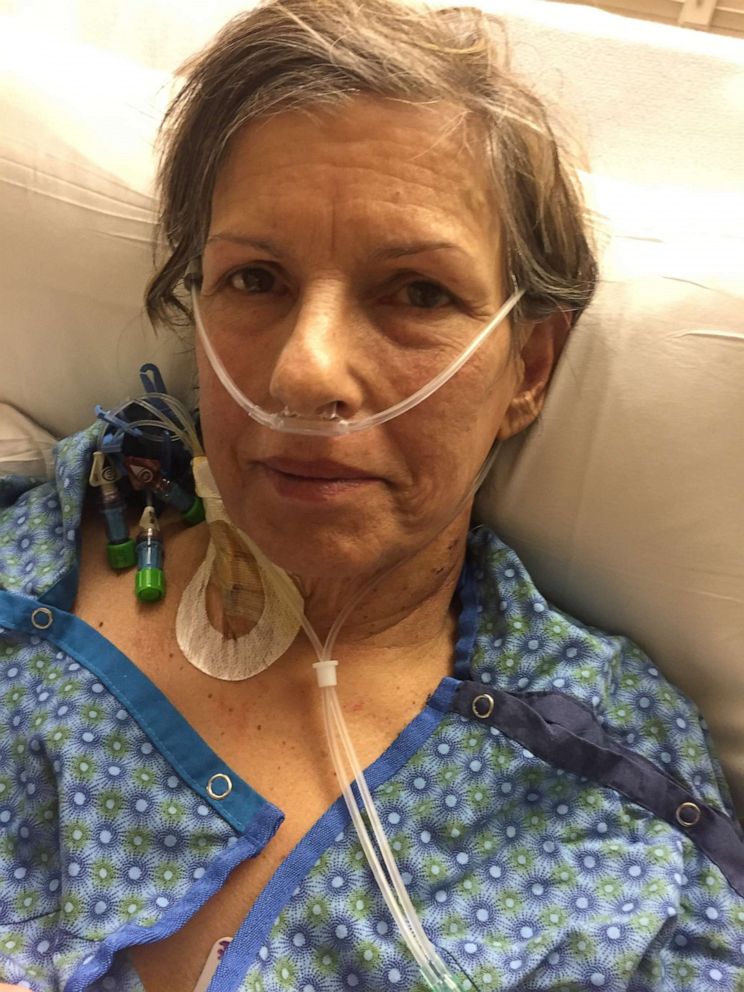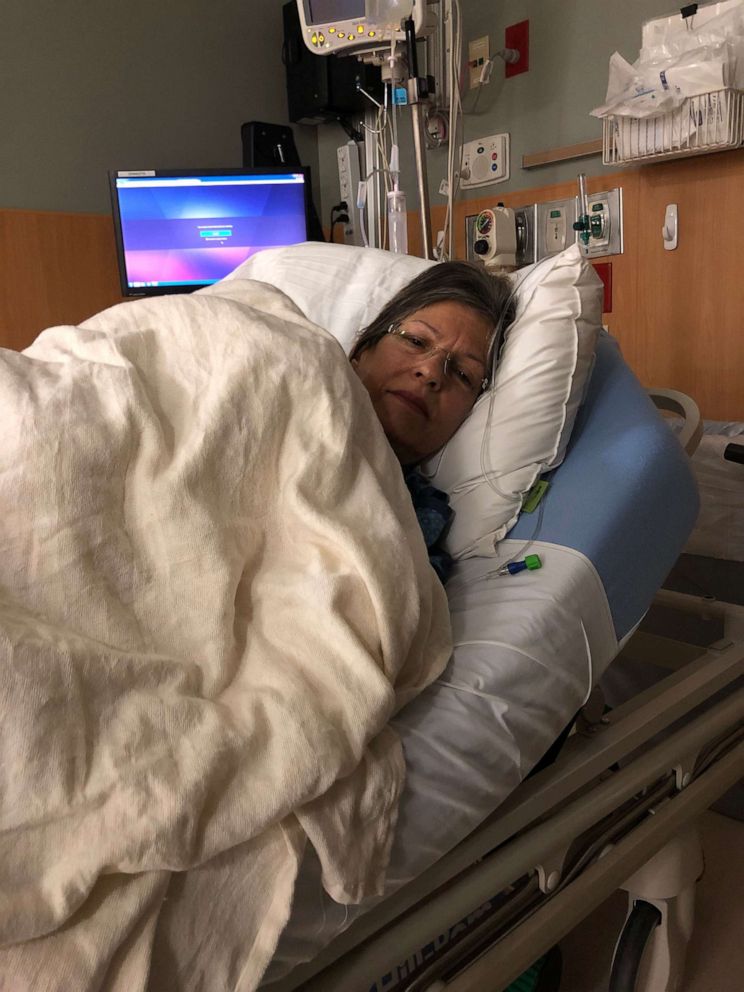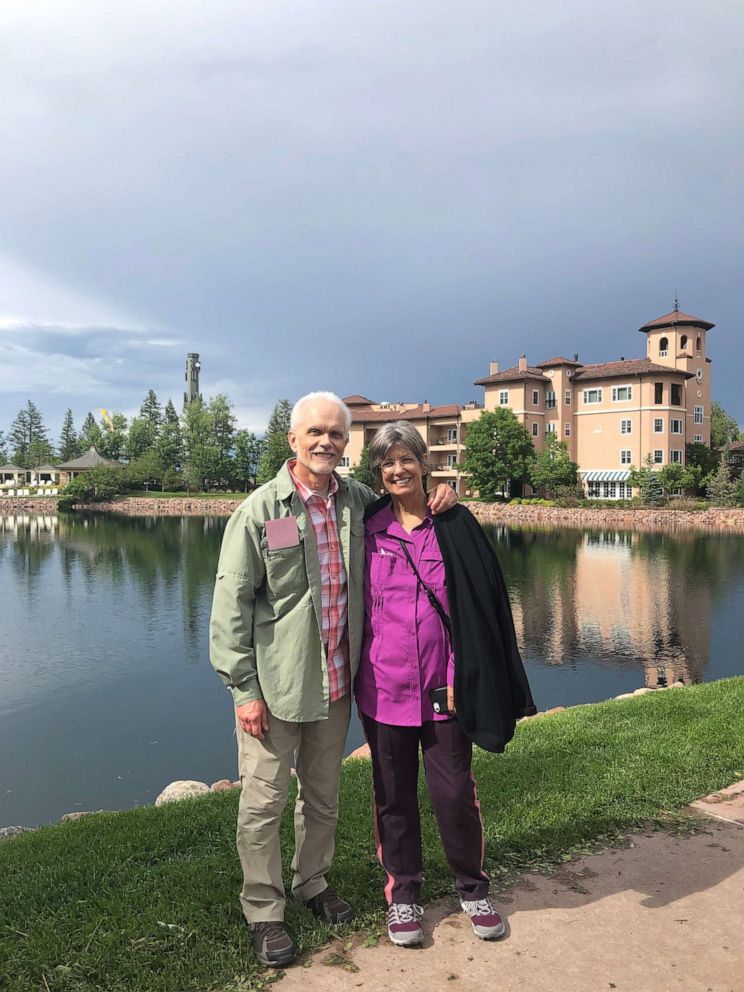A woman was dying of liver cancer, until a hepatitis C-infected organ saved her life
A Colorado woman was saved by a hepatitis C infected organ.
"What have I done?" Dr. James R. Burton Jr. thought to himself in disbelief.
As a young medical student, he had taken the Hippocratic Oath and pledged "first, do no harm."
But here he was, purposefully infecting one of his patients with hepatitis C.
It was March 13, and just hours before, his patient, Betty Huart, had undergone a liver transplant to cure her liver cancer. But the new, donated liver that was supposed to save her life was tainted with the disease -- a serious but curable infection that affects the liver.
"I did not sleep well that night," Burton told ABC News.
"But I told myself … I know I can cure this," added Burton, a hepatologist at UCHealth and an Associate Professor of Medicine at the University of Colorado School of Medicine.
There had been an influx of available kidneys and livers in America in recent years due to the rise of opioid overdoses in young people. And while these organs were infected with hepatitis C, they were, for the most part, healthy and unscarred.
Burton knew that researchers had made significant ground in hepatitis C treatments in the last five years: Now, with just a few pills a day, nearly all people infected who took the treatment were cured in a matter of 12 weeks.
Perhaps he could put an infected liver inside Betty, cure the disease and ultimately save her life, he recalled thinking -- the first such effort in Colorado, according to UCHealth.
Other medical centers had successfully implanted a diseased organ too. In 2015, Johns Hopkins hospital successfully saved a woman who has been waiting for a liver for three years. After the process of antiviral recovery was explained to her, she agreed to be transplanted with a liver infected with hepatitis C. Two months later, the virus was undetectable, her doctors said. In 2017, Brigham and Women’s Hospital in Boston also successfully transplanted hepatitis C-infected hearts and lungs into 44 patients, and all traces of the disease were undetectable after two weeks of antiviral drug treatment.
While there are 6,000 liver transplants performed every year in America, there are still more than 17,000 people waiting to receive the life-saving organ, according to the American Liver Foundation.

So in the fall of 2018, Burton enrolled Huart in a new study that looked at whether hospitals could transplant a hepatitis C-positive organ into a patient and then cure the patient of the disease. Researchers hoped that the study, which took place at the University of Colorado and five other transplant centers, would show that by using these tainted organs, patients would spend less time on transplant lists, and more time living their lives.
Huart herself had been on the liver transplant list for several months. She was diagnosed with fatty liver disease in the early 2000s, which later evolved into cirrhosis, and finally turned into liver cancer. She had exhausted all other routes, including a living donor option.
"I did not want to get as sick as some people [on those lists]. … I just knew that that’s not what I wanted to do," said Huart, who lost her father to liver disease in 1987.
"This November, I will be the age of 66. And that was the age [my father] died," she continued. "So what do you think I'm thinking? I'm thinking: I’ve got only so many more full moons, only so many more shooting stars to see."

Hepatitis C is a virus that is transmitted through intravenous drug use, blood transfusions or medical equipment. An estimated 3 million people in America are currently infected and the disease is also the leading cause for liver transplants.
Huart was no stranger to hepatitis C, though. Her husband Steve has contracted the virus back in the ’80s while working for the Navy, and spent years battling the devastating disease. The old treatment, which involved giving shots to stimulate the immune system, only worked in about 40% of patients and was associated with flu-like side effects.
"The medicine just emaciated him. Emaciated him to where he looked like he was just a suit on a hanger," said Huart.
New drug advancements made Huart and her husband consider Burton’s offer, but a few of their friends weren’t so supportive of the idea.
"Some said, 'What are you, nuts? After what Steve went through, you want to go through with that?'" said Steve.
But what choice did they have?
"The whole transplant process, it's just mind boggling," explained Steve.
"You live waiting for a phone call," he continued. "Every day is like ‘Is this going to be the day?’ And if the phone call doesn't come, you go to bed going, ‘Oh, well another day.’ [But] am I going to make it to the next day? Or am I going to make it at all?"
For Betty, the decision was clear.
"It was like being at the edge of a cliff. Either you’re going to jump over the cliff, or you’re going to take that freight train that’s running right at you," explained Huart, a mother of two.
"I thought I’d jump over the cliff," she added.
On the afternoon on March 12, 2019, Huart answered her phone while running errands in Target. It was the hospital calling, telling her to report for surgery. They had found a liver (albeit with hepatitis C).
Huart tried not to get her hopes up – they had already raced to the hospital twice before, only to be told that the surgery wouldn’t go forward for one reason or another.
Meanwhile, Denver’s temperature was dropping rapidly and an intense storm raged.
Huart and her husband arrived at the hospital around 8:30 p.m. By midnight, though, the surgeon still hadn’t taken her back to the operating room. The couple started to get nervous. Where was Huart’s liver? Was it still en route, with the winter storm raging outside?

With Centennial Airport shut down, the hospital considered telling the small plane that was carrying Huart’s liver to land in Pueblo and drive the liver two hours north to Denver. As the minutes ticked by, Huart and her husband braced themselves for the hard truth: They would likely be going home without a liver. Again.
"But then they came in and said, 'The liver’s in! We got it!'" recalled Huart.
While Huart was transferred to surgery, Dr Burton sat nervously with Steve in the hospital waiting area. Several hours later, Betty emerged from the operating room with a new liver and a new lease on life.
But three days later, blood tests confirmed the expected: Huart had contracted hepatitis C.
Within a week, Burton and his team of medical professionals started Huart on her new oral pill treatment and within a few days, the disease was undetectable.
Twelve weeks later, and Huart was officially cured.
"Every day just gets better and better," Huart told ABC News.
"I rode a bike for many years, and for the last 12 years, I have not wanted to ride a bicycle," she continued. "I was just too tried." But four months after surgery, Huart found herself pedaling down a dirt-covered trail.
"The smile on my face [when I rode that bike] doesn’t do the smile that was going on in my mind. That I was actually on a bike again and riding," said Huart, breaking into a grin.

Burton admitted he still found it difficult to wrap his head around the fact that something that once hurt Steve actually helped cure Steve's wife.
"It’s so effective that there will be no more studies, no more research with hepatitis C," said Burton, who hopes other patients in need of kidney or liver transplants will consider a hepatitis C-infected organ.
"The research is done. There’s no more treatments coming. It’s hard to improve on something that is [so] effective," he added.




